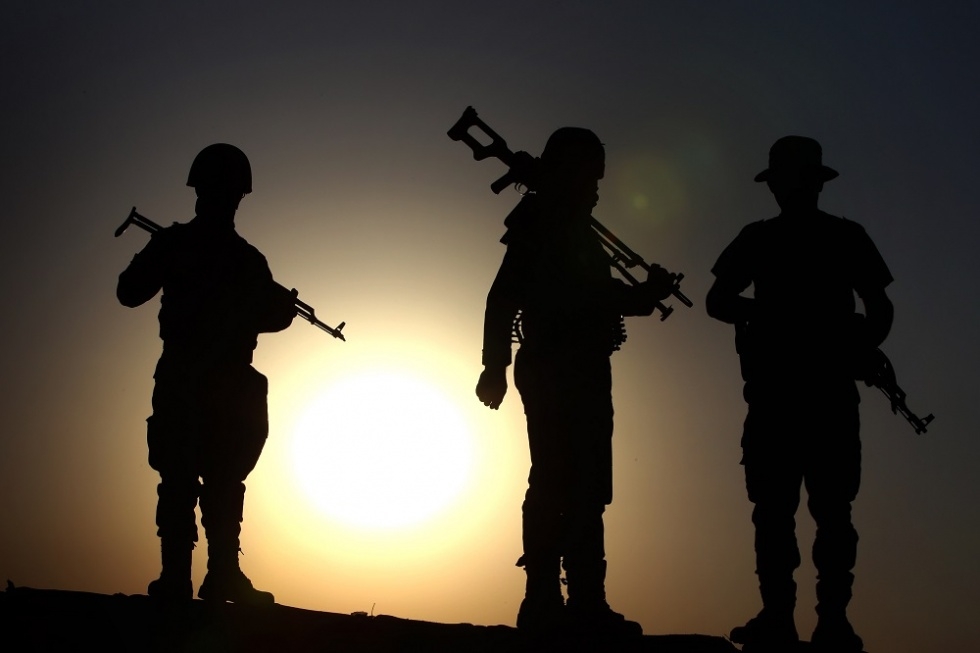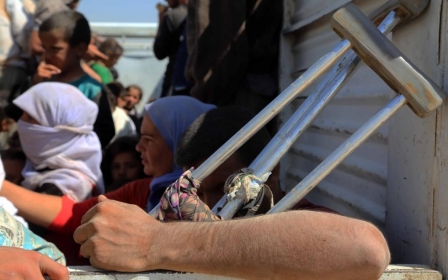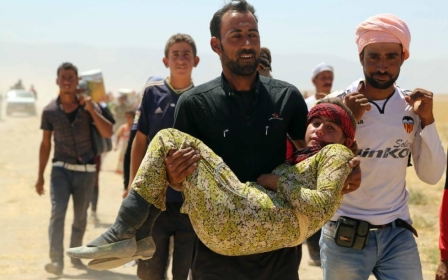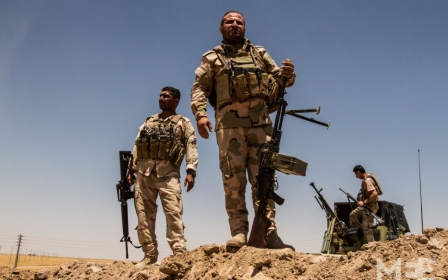Peshmerga inflict ‘big losses’ on IS, recapture majority of Mosul dam

Islamic State suffered “big losses” at the hands of Iraqi Kurdish Peshmerga fighters on Sunday, Kurdish officials said.
The Peshmerga, backed by US war planes, made inroads against IS fighters over the weekend seizing several key towns and launching an offensive to retake Mosul dam that fell to IS more than two weeks ago.
“Fighting is ongoing at the Mosul dam and we have caused big losses to IS and now more than 80 percent of the dam is controlled by the Peshmergas,” Abdul-Khaliq Babiri, a senior member of the Kurdistan Democratic Party (KDP) told Rudaw news agency.
“Within the next few hours we expect to clean up the area from ISIS and fully control Mosul dam,” added Babiri who is on the Mosul frontlines.
An AFP journalist saw towers of smoke rising from the dam area on Sunday.
The dam on the Tigris River north of Iraq's second city provides electricity and irrigation water for farming to much of the region. Concern had been rife that IS would destroy the dam and flood much of Iraq, ruining agriculture and infrastructure and spreading disease.
If recaptured, the dam will be the biggest major prize won back from Islamic State militants to date.
Peshmerga advance
Earlier in the day, Iraqi Kurdish sources seized Tilsqof and Batma with fighting to gain control of other key areas ongoing.
“With the help of American fighter jets, the Peshmerga launched a wide-ranging attack this morning. We have taken Telsqof and Risala villages and we are moving towards the Mosul dam,” a Peshmerga commander in the area told Rudaw.
The commander said that IS militants, who launched a mass offensive in Iraq in early June, were finally retreating.
“But we are moving carefully because the Islamist militants have left explosives behind and we want to minimise our losses,” the commander added, while stressing that his forces were determined to retake the Mosul dam.
“The assault will continue until we retake Zumar and Shingal as well,” he said, referring to two towns where IS had clashed with Peshmerga earlier this month.
IS had made spectacular gains in recent weeks, pushing back the Peshmerga and sending hundreds of thousands of Iraqis fleeing north to the autonomous Kurdish region. However, since US President Barack Obama authorised airstrikes against IS positions on 8 August and began arming the Peshmerga, the tide seems to have turned against IS.
But the increasing US, as well as European, support for Iraq’s Kurds has caused resentment in Baghdad, with IS still trying to push south toward the Iraqi capital despite resistance from local Sunni tribes. Some two dozen tribes pledged their support to the Iraqi government on Friday and have since made small gains against IS in the Anbar province, west of Baghdad.
Officials now say that support for only one side may further propel the state’s disintegration and plunge the region into further disarray.
There are also rising concerns that recent Peshmerga gains will push Iraqi Kurds to seek outright independence.
On Sunday, German Foreign Minister Frank-Walter Steinmeier, who has recently returned from the region, warned against any push, saying that the international community must work toward ensuring stability.
"An independent Kurdish state would further destabilise the region and trigger new tensions, maybe with the neighbouring Iraqi state as well," he told the Bild Newspaper in an interview.
The aim, he added, "was to manage to preserve Iraq's territorial integrity".
According to another German news publication, Der Spiegel, the German government is now considering international military intervention in northern Iraq, although the source stressed that Germany would only take part if the mission was carried out under the aegis of the United Nations.
Germany and France were both vocally against the US-led invasion of Iraq in 2003 which failed to secure a UN endorsement.
New MEE newsletter: Jerusalem Dispatch
Sign up to get the latest insights and analysis on Israel-Palestine, alongside Turkey Unpacked and other MEE newsletters
Middle East Eye delivers independent and unrivalled coverage and analysis of the Middle East, North Africa and beyond. To learn more about republishing this content and the associated fees, please fill out this form. More about MEE can be found here.




